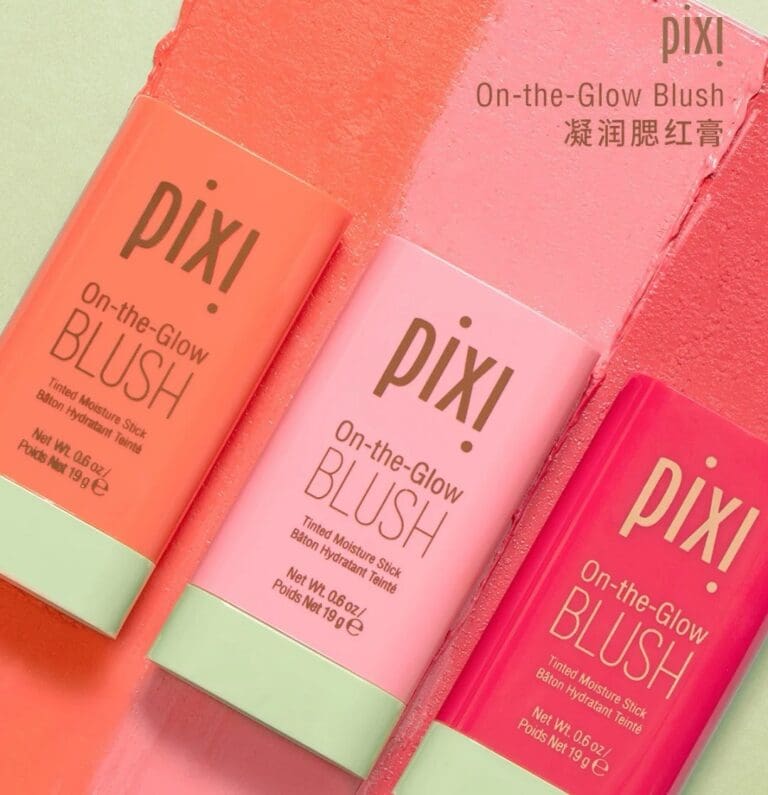
Introduction
Social commerce in China has become a major trend, especially in the beauty industry. This concept blends social media and online shopping, making it easier for brands to engage with customers. Platforms like WeChat, Weibo, and XiaoHongShu (Little Red Book) are popular venues for social commerce. These platforms allow beauty brands to interact directly with consumers, share product information, and even sell products within the app. Social commerce in China not only boosts sales but also helps brands build a loyal customer base. For beauty brands, it’s important to tap into this trend to reach a broader audience and increase brand visibility.
Brand 1: Perfect Diary
Perfect Diary engages with its consumers and drives sales through popular social platforms like WeChat and RED. On WeChat, they share detailed content such as beauty tutorials, product reviews, and new launch announcements. They also maintain interactive groups where customers can ask questions and share their experiences. These efforts create a strong community and keep their audience engaged.
On RED, Perfect Diary collaborates with influencers and encourages users to post reviews and makeup looks featuring their products. These posts serve as authentic endorsements, helping potential buyers make informed decisions. By being active on these platforms, Perfect Diary stays connected with their customers and boosts their sales.
Brand 2: Forest Cabin
Forest Cabin, a skincare brand, has embraced a strategic approach to reach Chinese consumers by leveraging live streaming and partnerships with influencers on social commerce platforms. These platforms, highly popular in China, allow companies to connect directly with customers in real-time, creating an engaging and interactive shopping experience.
Live streaming enables Forest Cabin to showcase their products, demonstrate their use, and answer questions from the audience immediately. This immediate interaction helps foster trust and interest in their skincare solutions. Additionally, viewers have the convenience of purchasing products directly through the stream, making the process seamless and integrated.
Partnering with influencers is another critical component of Forest Cabin’s strategy. Influencers, who have large followings and significant sway over consumer purchasing decisions, help the brand to expand its reach. Through these partnerships, the brand gains credibility and authenticity, as well-known personalities endorse their products and share their own experiences. These influencers create authentic and relatable content that resonates with their followers, drawing attention to Forest Cabin’s range of skincare offerings.
By combining live streaming with influencer promotions, Forest Cabin effectively captures the attention of online shoppers in China, driving engagement and increasing sales on social commerce platforms.
Brand 3: Florasis
Florasis has carved out a niche by blending traditional Chinese aesthetics with modern social commerce techniques. This approach is particularly evident on platforms like Douyin and Taobao. They incorporate classical Chinese designs, colors, and stories into their packaging and branding, making their products visually appealing and culturally significant. By leveraging the power of social media platforms like Douyin, they engage with customers through live streaming and interactive content. On Taobao, they offer detailed product information and reviews, fostering an educated and trusting customer base. This combination of age-old artistry and contemporary marketing strategies has allowed Florasis to connect deeply with consumers, bringing a piece of cultural heritage into modern skincare routines.
Key Insights from Selected Brands
Successful Tactics Employed by Each Brand and How Other Beauty Brands Can Apply Them
1. Perfect Diary
Perfect Diary shines in its use of influencers and key opinion leaders (KOLs) to generate interest in its products. With strategic collaborations, they can produce authentic reviews and tutorials that resonate with their demographic. Other beauty brands can emulate this approach by identifying well-known influencers within their market, and forming partnerships to create engaging content that spotlights their products.
2. Florasis
Florasis has effectively established its brand by integrating traditional Chinese aesthetics and cultural elements into their image. This connection to culture has allowed them to differentiate themselves and connect more deeply with local customers. Beauty brands aiming to thrive in the Chinese market may consider weaving local cultural themes and narratives into their brand story, making their products more appealing and relatable to Chinese customers.
3. Huda Beauty
Huda Beauty has successfully established a strong online footprint by producing high-quality, user-generated content and making use of platforms like Weibo and Xiaohongshu. By frequently interacting with their audience through tutorials and interactive content, they have built a devoted community. Beauty brands can replicate this strategy by actively promoting user-generated content, sharing customer reviews, and maintaining a visible presence on popular social media platforms to foster a sense of community and trust.
In conclusion, brands such as Perfect Diary, Florasis, and Huda Beauty have successfully implemented strategies that resonate deeply with their target customers. By employing a mix of influencer marketing, cultural connection, and active online community building, they have established a strong presence in the beauty industry. Other beauty brands can learn from these tactics and adapt them to their own strategies for potential success.
Conclusion
In conclusion, having a strong social commerce strategy is crucial for beauty brands aiming to succeed in the Chinese market. The unique landscape of social media usage in China, combined with the rapid growth of e-commerce, means that brands need to integrate their social media and online sales efforts seamlessly. By doing so, they can better engage their target audience, build brand loyalty, and drive sales. Consider your current strategy and identify areas that need improvement to align with the trends and preferences of Chinese consumers. Adjusting your approach today can lead to greater success tomorrow.
For skincare brands looking to penetrate the Chinese market, a reliable solution like YASO, a social commerce solution customized for brands selling to China, can be an excellent choice. Visit the link to learn more and enhance your social commerce strategy today.



